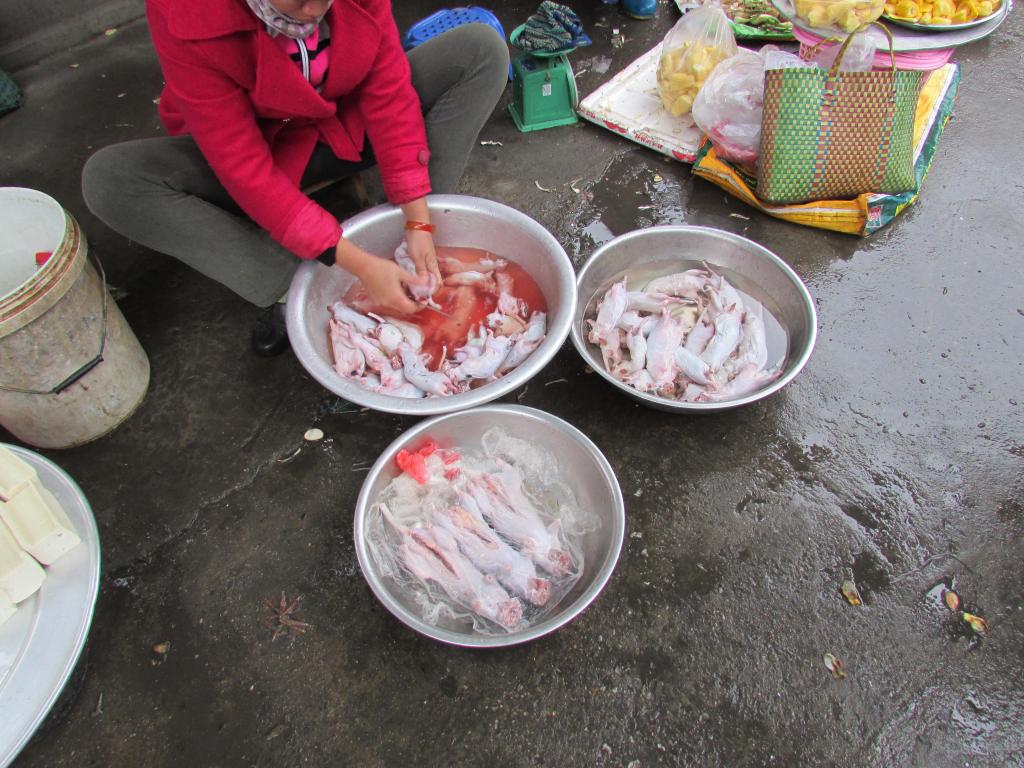Today's e-Edition
Get Morning Report and other email newsletters
Get Morning Report and other email newsletters
Today's e-Edition
Trending:
An article penned by a Stanford University professor that alleges Vietnam’s “aggressive tendencies” are tied to its penchant for eating meat — particularly rats, birds and dogs — has triggered a social media backlash from Vietnamese and others around the world.
The opinion piece — “Despite increasing prosperity, Vietnam’s appetites remain unique” — was written by Joel Brinkley, a Pulitzer Prize-winning former foreign correspondent for The New York Times and posted Tuesday on the Chicago Tribune’s website. Describing a trip he made to Vietnam, Brinkley said he observed a dearth of squirrels, birds and rats. He also said the “World Wildlife Fund describes the state as the world’s greatest wildlife malefactor.”
Brinkley began his article this way: “You don’t have to spend much time in Vietnam before you notice something unusual. You hear no birds singing, see no squirrels scrambling up trees or rats scurrying among the garbage. No dogs out for a walk.
“In fact, you see almost no wild or domesticated animals at all. Where’d they all go? You might be surprised to know: Most have been eaten.”
The article triggered an angry reaction from Vietnamese and non-Vietnamese, some of whom said the article included generalizations bordering on racism. Late Friday, Tribune Media Services issued a statement saying that the column did not meet its journalistic standards and that all its required editing steps “did not occur.
“We regret that this happened, and we will be vigilant in ensuring that our editing process works in the future,” the news service said in its statement.
Gwen Uyen Nguyen, co-founder of OneVietnam Network, a Bay Area-based online community that supports nonprofits in the Southeast Asian country, said about the column: “It’s insulting.
“It’s a direct attack on our culture. It’s disconcerting to me that this is something from a Pulitzer Prize winner and a Stanford University professor.”
While the World Wildlife Fund has criticized Vietnam’s conservation policies around tigers, rhinos and elephants, weak government enforcement efforts has nothing to do with the consumption of animals like rats and dogs, said Pamela McElwee, an assistant professor of human ecology at Rutgers University and an expert on Vietnam’s wildlife conservation. Animal trafficking, she added, is a problem in many countries.
“I don’t see how he gets from his dislike of people eating dog and rat meat to this idea that this says something about wildlife conservation in Vietnam,” McElwee said.
McElwee, who lived in Vietnam for five years, also criticized Brinkley for linking Vietnam’s meat-eating habits with aggression. “The history of Southeast Asia — all of those countries have seen their share of war. The U.S. is the second-largest per capita meat-eating population.”
In an interview, Brinkley said he drew his observations from a 10-day trip across Vietnam. “I was traveling with a group and this was an observation we all made,” he said of lack of wildlife in Vietnam.
In six years of column writing, Brinkley said he has never received so much reaction to one of his pieces.
“Vietnamese seem to be particularly sensitive to criticism, like a lot of people around the world,” he said. “Some of them have told me in emails that this makes them sound barbaric, which was not my intention.”
In a post on the journalism website JimRomenesko.com, Brinkley defended his assertion that the meat-eating propensity of Vietnamese made them more aggressive than their Southeast Asian neighbors.
“On the issue of meat and aggressiveness, perhaps that was not as well phrased as it should have been,” he wrote. “But eating a diet rich in protein will make you more robust than others, in Laos, Cambodia and other Southeast Asian states who eat rice and very little else. After all, half of Laotian children grow up stunted, even today. In Cambodia the rate is 40 percent. That means they grow up short and not so smart. Would it also follow that they would be less aggressive than Vietnamese? I think so.”
Contact John Boudreau at 408-278-3496; follow him at Twitter.com/svwriter.
Copyright © 2024 MediaNews Group

